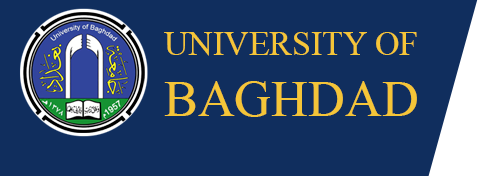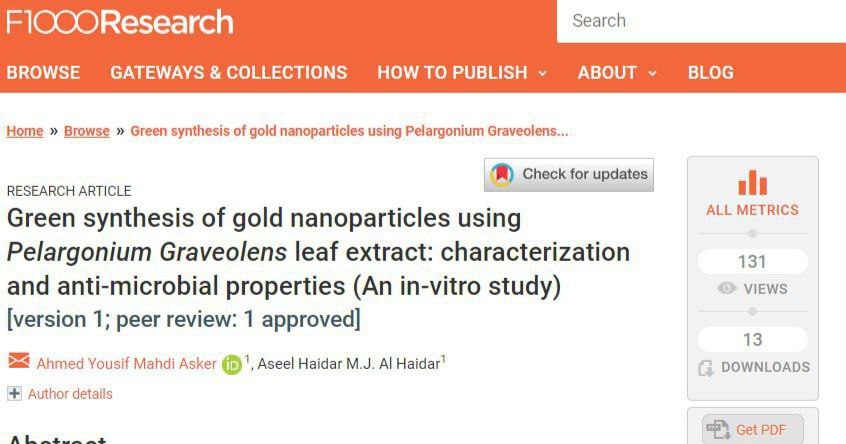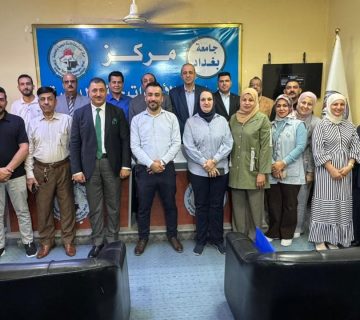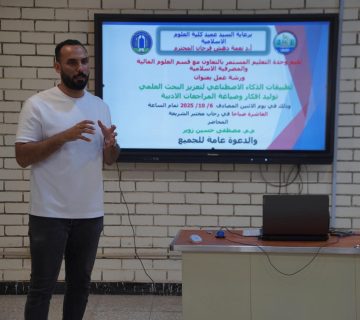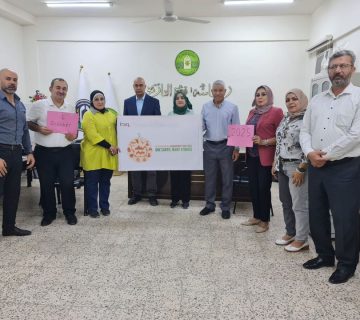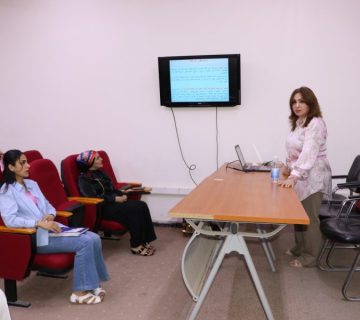The College of Dentistry at the University of Baghdad published a study titled “Green synthesis of gold nanoparticles using Pelargonium Graveolens leaf extract: characterization and antimicrobial properties (An in-vitro study)” in the journal F1000Research in the United Kingdom. The research was conducted by Assist.Prof.Aseel Haider Mohammed Jawad, Head of the Department of Pediatric and Preventive Dentistry, and Master’s student Ahmed Yousif Mahdi Asker from the Department ofBackend Editor Pediatric and Preventive Dentistry at the College of Dentistry, University of Baghdad.
The study aimed to establish a nano-platform with environmentally sustainable capabilities, highlighting exceptional antimicrobial properties against Streptococcus mutans and Candida albicans. It utilized Pelargonium Graveolens leaf extract as a cost-effective and environmentally sustainable approach for green synthesis of AuNPs (gold nanoparticles). Physical and chemical properties were evaluated using various analytical methods including transmission electron microscopy (TEM), X-ray diffraction (XRD), field emission scanning electron microscopy (FESEM), UV-visible spectroscopy, energy-dispersive X-ray spectroscopy (EDX), and infrared spectroscopy (IR).
The study recommended the use of gold nanoparticles (AuNPs) derived from Pelargonium Graveolens, which demonstrated promising potential as antibacterial agents against Streptococcus mutans and Candida albicans. Nanoparticles (NPs) have the capability to serve as a novel approach for treating infectious diseases and for biomedical, dental, and pharmaceutical purposes in the future.
